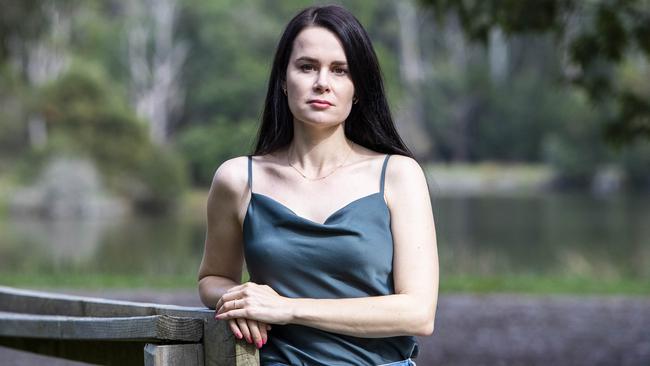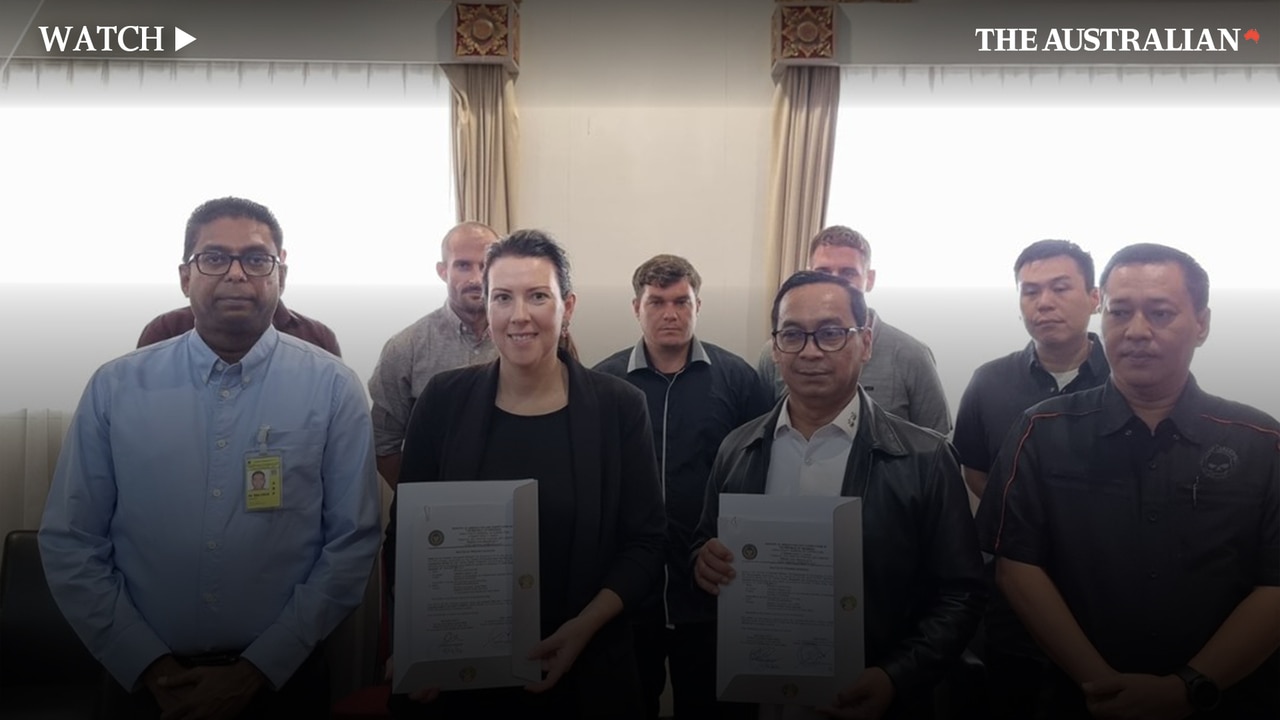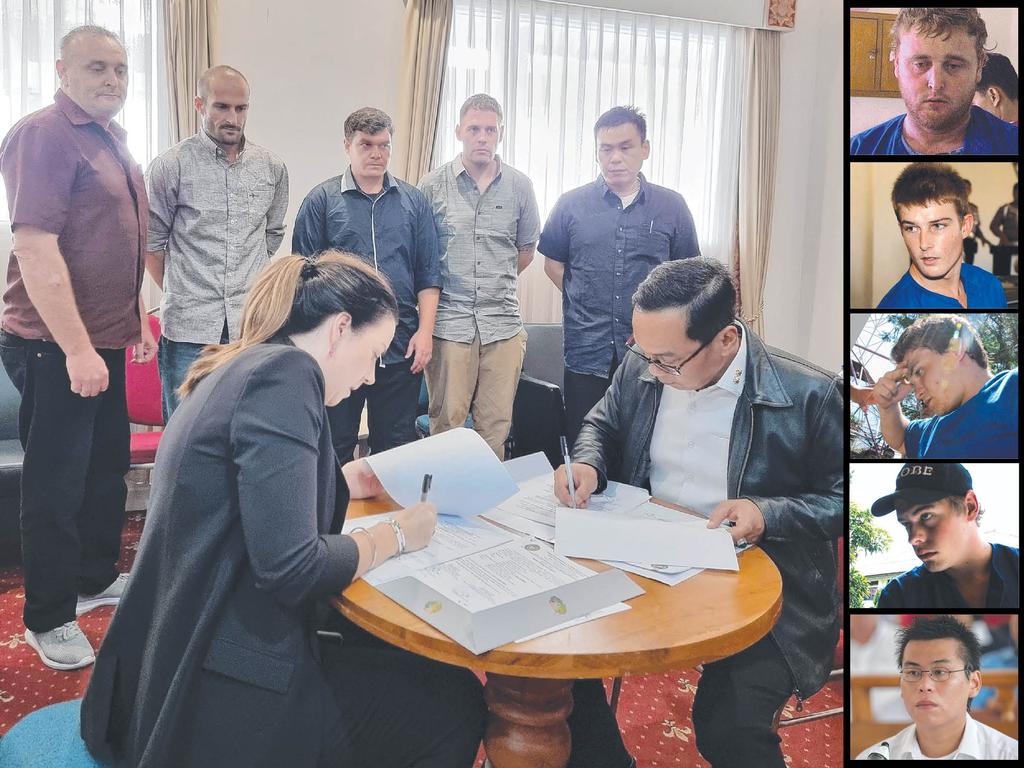Bali Nine case shows government needs to do more for wrongfully imprisoned Australians: Kylie Moore-Gilbert
The academic, who spent 800 days in prison in Iran, has called on Australia to establish a formal repatriation program to assist citizens who have been wrongfully detained overseas.

Labor’s support for the five released members of the Bali Nine will be “shocking” to Australian citizens who are or have been wrongfully imprisoned overseas, former prisoner of the authoritarian Iranian regime, Kylie Moore-Gilbert, has declared.
Dr Moore-Gilbert, who spent more than 800 days in an Iranian prison over baseless espionage charges, told The Australian that the effort directed at the convicted drug smugglers stood in contrast to the meagre assistance often offered to others in similar predicaments.
“It does bother me that the more high-profile cases seem to get all of this additional assistance,” she said, highlighting the support extended not only to the Bali Nine but also Schapelle Corby and Australian women who married Islamic State militants. “You’ve got people who quietly arrive back in Australia, without any fanfare or media attention, after being unjustly detained as innocent people, some of whom for years in horrific conditions, and they get little to no support at all.”

The remaining five members of the Bali Nine returned to Australia on Sunday after an unprecedented deal between Anthony Albanese and Indonesian President Prabowo Subianto. Those men – Matthew Norman, Martin Stephens, Si Yi Chen, Scott Rush and Michael Czugaj – had served 19 years for their roles in the attempted smuggling of more than eight kilograms of heroin into Australia.
The men are now receiving government support and medical checks at the Howard Springs Detention Centre in Darwin. The five traffickers will stay there for some time to undergo rehabilitation.

The Prime Minister thanked President Prabowo on Monday for his “act of compassion” and revealed he had spoken to a number of the men’s parents.
“They are grateful that their sons have been able to return home,” Mr Albanese said.
“They did a serious crime and they have rightly paid a serious price for it. But it was time for them to come home.” But Dr Moore-Gilbert, a Macquarie University research fellow who is also the director of the Australian Wrongful and Arbitrary Detention Alliance, said that while she was happy to see the men return, she was uncomfortable with the vast difference in the amount of support directed at the men in contrast to Australians who had been wrongfully detained.
Life after political imprisonment a journey with 'ups and downs': Kylie Moore-Gilbert
She said she was aware of a recent case of an Australian man who spent four years on death row in Thailand for a drug-related crime, before being fully exonerated in the Thai Supreme Court in 2021, and immediately released.
Dr Moore-Gilbert said he was given no support from Australia, and ended up being in debt to the Australian government after they billed him for his flight home.
“When he landed back in the country after suffering significant physical and psychological trauma he did not receive any medical assistance,” she said.
“He’d lost everything - his money, his family, everything, he’d been exonerated from committing a crime - and he came back to a debt and no support whatsoever.
“Yet you’ve got famous drug smugglers in Bali who actually committed those crimes, who haven’t been exonerated, and yet come back to robust Australian rehabilitation support … I don’t begrudge this, I think it’s fantastic. I just think every detainee should be offered this support. Its the unequal application of it that is upsetting.”
Dr Moore-Gilbert said Australia could learn lessons from both the US and Australian defence forces, both of which have formal repatriation programs.
American citizens who are held hostage or wrongfully detained overseas are taken to a military base upon their release, where they are put through a rehabilitation program, assessed by medical and psychological experts, and helped with their social reintegration.
Defence also has a similar program for personnel who are taken captive during their service.
Last month, a senate inquiry handed down some 18 recommendations to improve the way the government manages Australian citizens who have been wrongfully detained overseas, including a call to establish a new office that would, among other things, provide medical, counselling, legal and administrative assistance for victims of wrongful detention.
“We are capable of doing this (a formal repatriation program), and this was a recommendation of the inquiry as well, but there just doesn’t seem to be a recognition of it or an appetite for it,” Dr Moore-Gilbert said.
“You just fall between the cracks.”








To join the conversation, please log in. Don't have an account? Register
Join the conversation, you are commenting as Logout